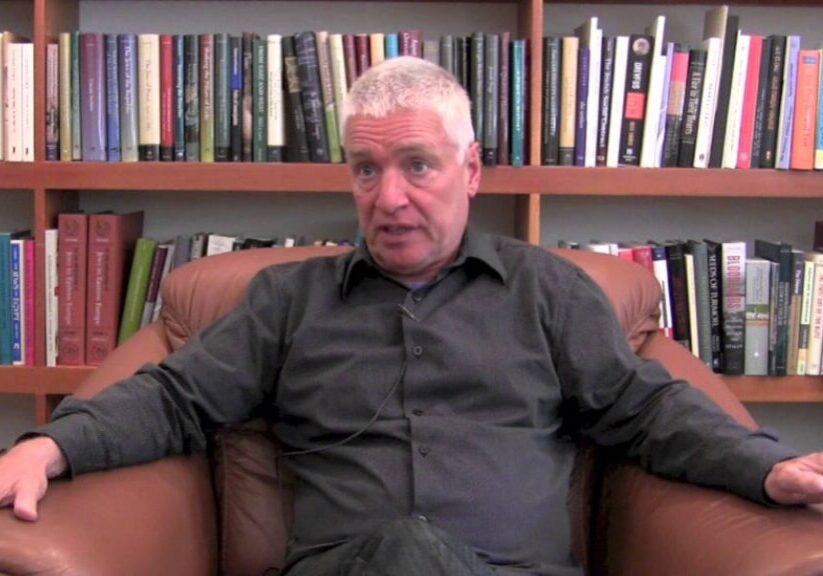Australia/Israel Review
Europa Europa: Of Hawking and Hatred
May 28, 2013 | Douglas Davis
Douglas Davis
Growing up in the madness of apartheid South Africa teaches you more than you might want to know about the dark underside of humanity. I am grateful, though, for one surprising – and abiding – lesson I learned at university there: the sharpest minds were to be found among the most enthusiastic cheerleaders of South Africa’s racist ideology. Intellectual brilliance, I discovered, is no qualification for moral clarity or academic achievement for political judgement.
In South Africa, the question that haunted me was: am I crazy or is everyone around me out of their collective mind? The same question occurred again last month when I heard that the eminent Cambridge physicist Stephen Hawking, basing himself on “advice from Palestinian academics”, had thrown in his lot with the boycott industry, which seeks to demonise and delegitimise Israel as the direct descendant of the original apartheid state.
Could a man of such prodigious intellectual talent really be so wrong? Of course he could. Naïve? Certainly. Stupid? Oh, yes. Evil even? Remember that the most demonic creatures produced in the last century were among the cleverest of men. I am not, of course, suggesting that Hawking, who suffers from a crippling motor neurone disease, is capable of industrial-scale butchery; nor, heaven forbid, am I denying him his right to free speech, which includes the right to criticise Israel (although I am perplexed – because he never seized the opportunity to utter any such criticism on his several visits to Israel).
While I celebrate Hawking’s freedom of speech I also celebrate the fact that his ability to communicate is made possible by the Intel Core i7-based communication system, a computer chip that was developed by an Israeli team of scientists at one of Intel’s R&D centres in Israel. More than most, Hawking must surely appreciate the genius of Israeli achievement in science and technology.
Just as I respect Hawking’s freedom of speech, I would wholeheartedly respect his freedom to dispense with his Israeli-contaminated communication technology (along with his computer, mobile phone and many other gadgets, electronic and medical). That is, after all, the logical extension of his boycott principle.
Sadly, however, I do not expect Hawking to display such intellectual integrity, for I detect not only grotesque hypocrisy and moral turpitude in his boycott decision, but also disgraceful professional conduct. The Times of London noted most trenchantly in an editorial that “his conduct is obtuse, mean-spirited and ungracious”, adding: “Professor Hawking should never have put his name to this campaign. It is an example of intellectual obscurantism masquerading as humanitarian concern. And that is stupid.”
But Hawking’s most grievous offence is to academia itself: Free inquiry is at the very heart of critical analysis, independent examination and intellectual progress. Academic boycotts are antithetical to the kind of open, creative investigation that is the essential prerequisite to advance knowledge, produce innovation and lead, as in Hawking’s case, to a better life for all.
The gathering which is the object of Professor Hawking’s principled stand is the annual President’s Conference, to be held in June, under the auspices of the President Shimon Peres. The theme of this year’s conference is “Facing Tomorrow” and will focus on international relations, economics, the environment and education. Among the 5,000 delegates who have elected not to boycott the event are the former US President, Bill Clinton, the former Russian President, Mikhail Gorbachev and the former British Prime Minister, Tony Blair.
The fact is that Israel will get by without Hawking. In academic terms, it is in good shape. Proportionally, Israel has more university graduates than any other country, while its scientists, engineers and agriculturalists publish more professional papers per capita and register more patents than do their counterparts anywhere else on earth. Israel also has the largest concentration of hi-tech companies outside Silicon Valley and is a world leader in medical and agricultural technologies. Whether Professor Hawking likes it or not, Israeli academics will go on making scientific breakthroughs, contributing to cutting-edge innovation and accumulating academic honours.
Hawking is perhaps the most impressive fish to become ensnared in the boycotters net. And, not surprisingly, the campaigners were dancing jigs of joy for the media. But there was something sad and pathetic about all this. Where is the academic excellence, the technological achievements and the science-driven innovation in the Palestinian universities? Or, for that matter, further afield in the Middle East? And how will those Israel boycotters apply their turbo-charged minds to a UNICEF report which shows that half of the women in the Arab world are illiterate and more than ten million children in the region do not even attend school?
I once consulted a Cambridge University scientist, Professor Sir Aaron Klug, on the subject of academic boycotts. Sir Aaron, a Nobel laureate and former President of the Royal Society, is arguably as eminent as Hawking and a not-uncritical observer of Israel.
He considers that boycotts are “ill-considered and don’t promote anything at all.” He noted that he is “not one who looks for antisemitism around every corner” but said of the boycott movement, “it does give people who are antisemitic the opportunity to express themselves.”
Douglas Davis is co-author, with Helen Davis, of Israel in the World – Changing Lives Through Innovation, which was published in London by Weidenfeld and Nicolson.
Tags: Anti-Zionism






